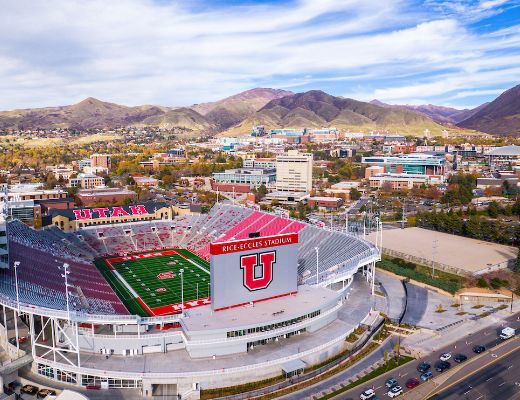
On June 18, 2024, a diverse group of community leaders gathered for the fourth strategy listening session to discuss the University of Utah’s impact, strengths, and opportunities for growth. The attendees included representatives from various organizations such as NeighborWorks Salt Lake, University of Utah, First Step House, NAMI Utah, Boys & Girls Club, Columbus Community Center, Utah Arts Alliance, Utah Pride Center, and Utah Clean Energy, among others. Below are the key themes and issues that emerged from the discussion.
Strengths of the U: Participants praised the U for its academic excellence, highlighting its strong programs in medicine, business, computer science, arts, and liberal arts. They noted that the university provides high-quality education at an affordable cost and has a state-wide influence with a positive reputation among Utahns.
A commitment to community and diversity: Attendees appreciated the U’s efforts in promoting a diverse and inclusive community, with strong support for the queer community and active involvement in arts and multicultural events. The U’s ability to challenge students to think critically and expose them to diverse viewpoints was seen as a significant strength.
Visibility and communication: Attendees emphasized the need for the U to better communicate its contributions and opportunities to the broader community. Leveraging its strengths in research and societal impact more effectively was seen as a critical area for growth.
Societal impact: The U’s high-quality medical facilities and research, leadership in renewable energy and sustainability projects, and significant contributions to healthcare access and innovation were praised. The university’s role as a large employer driving diversity in the workforce, its advances in tech and business incubators, and partnerships that enhance social impact and community development were also highlighted.
Room for improvement: While the University was seen as a major research hub with a growing national reputation, some participants felt it could benefit from better collaboration with smaller organizations and the wider arts community. There was also a call for clearer communication of the U’s climate change initiatives and priorities.
Accessibility and affordability were also identified as areas needing attention. Some participants perceived the University as expensive and elitist, particularly for non-traditional and out-of-state students. They suggested developing more pathways for tech certificates and apprenticeships and expanding healthcare programs to increase community support. Developing educational pathways, such as tech certificates and apprenticeships, was a key recommendation.
Engaging more with secondary schools and community organizations and enhancing leadership and mentorship programs for youth were also highlighted. Increasing funding opportunities for community partners, fostering interdisciplinary projects, and strengthening partnerships with local non-profits and businesses were seen as essential steps for the university to enhance its societal impact.
